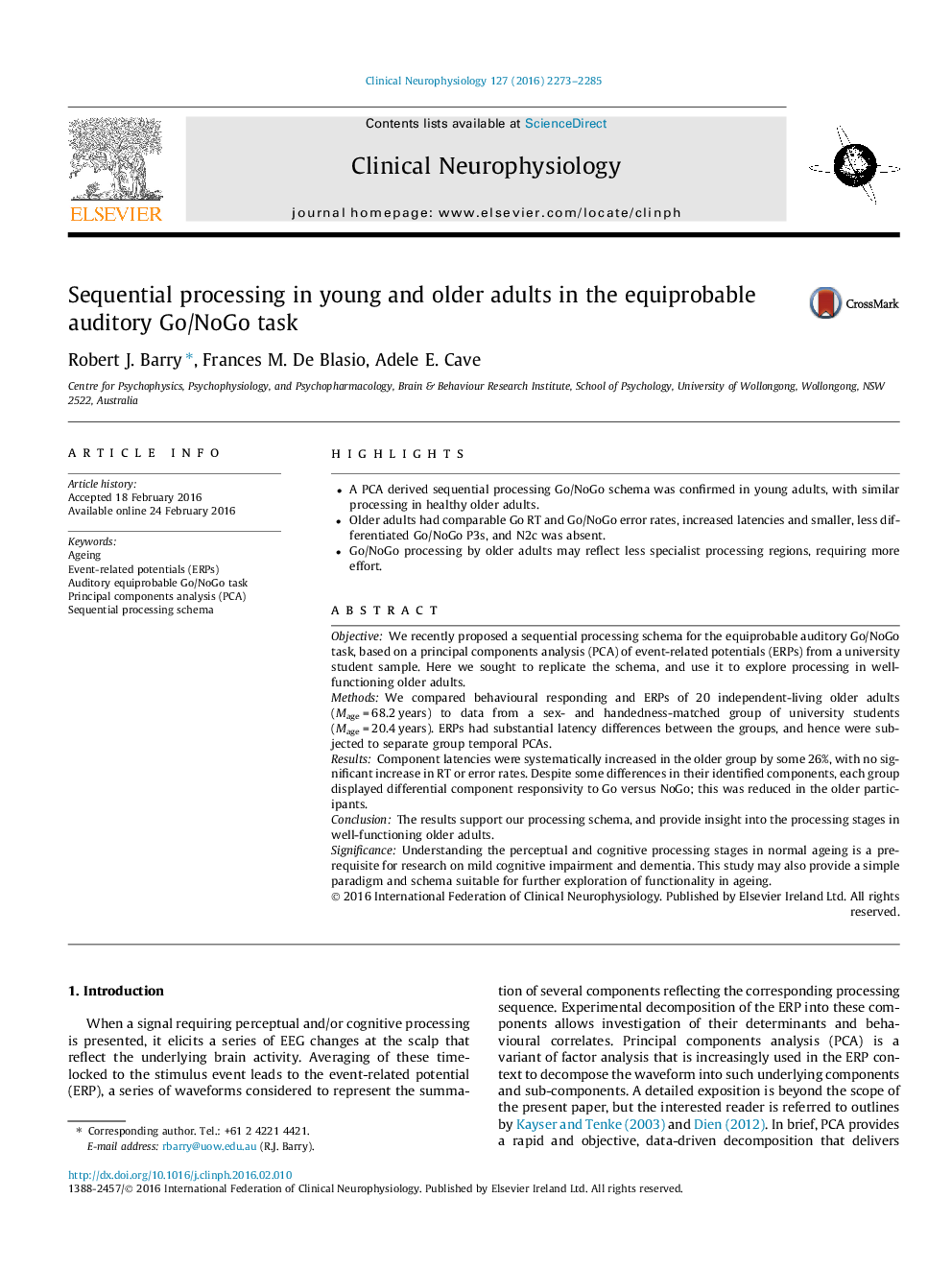| Article ID | Journal | Published Year | Pages | File Type |
|---|---|---|---|---|
| 6007449 | Clinical Neurophysiology | 2016 | 13 Pages |
â¢A PCA derived sequential processing Go/NoGo schema was confirmed in young adults, with similar processing in healthy older adults.â¢Older adults had comparable Go RT and Go/NoGo error rates, increased latencies and smaller, less differentiated Go/NoGo P3s, and N2c was absent.â¢Go/NoGo processing by older adults may reflect less specialist processing regions, requiring more effort.
ObjectiveWe recently proposed a sequential processing schema for the equiprobable auditory Go/NoGo task, based on a principal components analysis (PCA) of event-related potentials (ERPs) from a university student sample. Here we sought to replicate the schema, and use it to explore processing in well-functioning older adults.MethodsWe compared behavioural responding and ERPs of 20 independent-living older adults (Mage = 68.2 years) to data from a sex- and handedness-matched group of university students (Mage = 20.4 years). ERPs had substantial latency differences between the groups, and hence were subjected to separate group temporal PCAs.ResultsComponent latencies were systematically increased in the older group by some 26%, with no significant increase in RT or error rates. Despite some differences in their identified components, each group displayed differential component responsivity to Go versus NoGo; this was reduced in the older participants.ConclusionThe results support our processing schema, and provide insight into the processing stages in well-functioning older adults.SignificanceUnderstanding the perceptual and cognitive processing stages in normal ageing is a pre-requisite for research on mild cognitive impairment and dementia. This study may also provide a simple paradigm and schema suitable for further exploration of functionality in ageing.
